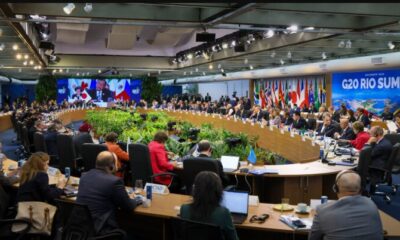Mr. Shokin was widely perceived as corrupt by United States and international officials. Mr. Biden potentially stood to gain something himself from the prosecutor’s firing, though Ukrainian officials say no Burisma case was active at the time Mr. Biden called for Mr. Shokin’s firing.
Republicans, including President Trump, see corruption in the Biden family’s mix of business and politics in Ukraine. But in May this year, the last prosecutor general to serve under President Poroshenko, Yuriy Lutsenko, declared that Hunter Biden had violated no Ukrainian laws. That might have been the end of the matter, except that Mr. Poroshenko’s presidency came to an end that same month. He had been defeated by a challenger, Volodymyr Zelensky, who had painted the incumbent as corrupt.
So what can be proved about the motives of an American president who tries to get Ukraine’s new leader to look into Burisma, the Bidens and Mr. Shokin’s dismissal? Democrats are in the habit of assuming Mr. Trump’s guilt. They assumed he was Vladimir Putin’s puppet, and many still do so even after the yearslong F.B.I. investigation that culminated in the Mueller report, which found nothing to substantiate the claim.
So, unsurprisingly, when his foes look at President Trump’s behavior toward Ukraine, they see only an obvious case for impeachment. Of course Mr. Trump acted in bad faith, withholding aid to extort Ukraine into opening an unjustified investigation into the son of a potential 2020 Democratic presidential nominee. What else could he have been doing?
The thinking continues, he could not have been acting in good faith, the way Mr. Biden was when he strong-armed Mr. Poroshenko, because Mr. Biden had the support of career diplomats, while President Trump did not — in fact, the president used his personal lawyer, Rudolph Giuliani, as an envoy to the Ukrainians. This maverick diplomacy is a prima facie indication of bad motives.
In all this, Mr. Trump’s opponents treat norms as if they were laws. But Mr. Trump openly campaigned in 2016 as someone who would rescind the nonlegal norms of American politics. He said he would “drain the swamp.” Washington’s traditional way of doing business, the legal but corrupt trade in money and influence, was something he was elected to attack. He has only contributed to the problem in the eyes of his critics, but for supporters the goal remains the same.
Mr. Trump was also elected to transform America’s foreign relations. The nation’s leadership in both parties and the Civil Service had embroiled the country in endless wars and a string of humiliations. That Mr. Trump considers officials serving in places like Ukraine to be part of the problem he was elected to solve is no secret. The testimony such officials have so far offered during impeachment hearings bears him out: Their view of American objectives is different from his. Such differences are supposed to be decided publicly, through elections. Mr. Trump happened to win the last one.

 Entertainment1 week ago
Entertainment1 week ago
 Tech4 days ago
Tech4 days ago
 Tech4 days ago
Tech4 days ago
 General News2 days ago
General News2 days ago
 Business News14 hours ago
Business News14 hours ago
 Jobs10 hours ago
Jobs10 hours ago
 General News1 day ago
General News1 day ago
 Business News13 hours ago
Business News13 hours ago

